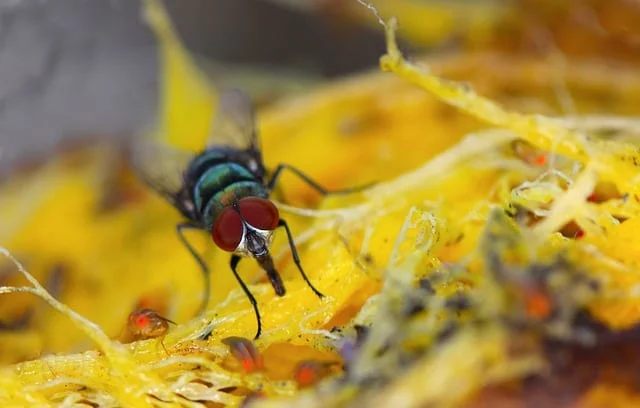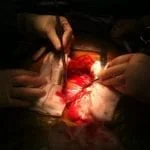Oh the sisters of mercy, they are not departed or gone.
They were waiting for me… Leonard Cohen
It seemed a great investment. My broker, who had a nose for this sort of thing and connections in every industry, said it was a once in a lifetime opportunity not to be missed: investing in a limited partnership just about to go public, seeking to raise capital to establish a rare earth mining enterprise in the Mount Ngualla area of Tanzania. He explained that rare earths are seventeen chemical elements, existing only in relatively small quantities, which are vital to many technologies, including consumer electronics, computers and networks, communications, clean energy, advanced transportation, health care, environmental mitigation, national defense, and many others. At the time, China had a stranglehold on the world supply of rare earths, but the Ngualla area appeared to hold significant amounts of bastnaesite and synchysite, ores that contain Cerium and several other rare earths.
I did not understand the fine points of mineral extraction and marketing, but it seemed like a good opportunity to make money and, being single and feeling adventurous, I made a half a million-dollar investment and thereby became one of five founding members of the limited partnership. To my delight, the investment proved a veritable gold mine (no pun intended) and within ten years of the start of operations, my partnership share was conservatively valued by my accountant at tens of millions of dollars, with an annual income in the high six figures.
All was fine and dandy. But then a strange letter with an overseas return address showed up in my mailbox. It read, “Dear Sir, you are an investor in a partnership that is exploiting the natural resources of Southwest Tanzania. The inhabitants of that region, particularly those living in the Chunya area, are impoverished and ravaged by deadly diseases including HIV and Rift Valley fever. The enterprise of which you are part does nothing to alleviate the suffering of the people, and instead contributes to the health crisis by causing its workers to contract pneumoconiosis and nephrogenic systemic fibrosis from the inhalation of mine dust. It obtained an environmental permit through the bribery of the corrupt Tanzanian government and is allowed to pollute and leave a permanent scar in our beautiful country. It exploits its workers by paying them hunger wages. For the love of God, please cease your nefarious activities. Either reform or shut down your operations in Ngualla now!” It was signed, “The Sisters of Mercy of Tanzania – A Congregation Member of the Mercy International Association.”
My first instinct was to throw the letter into the wastebasket and forget about it. Upon reflection, though, I decided to alert my partners of the broadside, since it could lead to public relations problems in the future. My inquiries were received with the equivalent of a corporate shrug of the shoulders. Yes, the partnership was aware of the charges, as all the other partners had received similar accusatory letters. No, the nuns in question were world famous do-gooders who lacked political or economic clout. Nobody in Tanzania would pay attention to them, and responding to their accusations would only give the claims free publicity. The best course of action was to ignore them. And so, I did.
A few months went by, and I pretty much forgot about the complaining nuns, that is until the arrival of another letter from abroad took me entirely by surprise. This one was very brief, “Sir, You and your partners continue to operate the Ngualla mines bringing suffering and despair to the innocent population of Tanzania. You are hereby advised that persisting in your ungodly behavior will have serious consequences for the partnership and its members, yourself included. Sincerely, The Sisters of Mercy of Tanzania – A Congregation Member of the Mercy International Association.”
I was somewhat cowered by the threat. I called John, the general partner. He was a brusque Irishman with whom I had sharp disagreements in the past, for I did not approve of his dictatorial and exploitative ways of running the enterprise. He replied to my questions about the threat with a series of invectives directed at nosy lesbian nuns, ungrateful savages, and politically correct liberals (perhaps meaning me). He bemoaned the passing of colonialism and ended his tirade by declaring in a huff, “Let them try to do something against us or our facility. I know where to find mercenaries in that part of the world. We’ll crush them.” I hung up, tore up the letter, and tossed it into the trash.
The holidays were approaching, and like the rest of the consuming public, I spent inordinate amounts of time making purchases and preparing for upcoming parties. One cold December morning, a large parcel arrived at my bachelor townhouse. It was wrapped in plain brown paper and had no return address. Thinking it was an early Christmas present from one of my aunts, I opened it and found it contained a cardboard box with an elaborate label that read, “Tanzania’s World Famous – Spice Island Spice Cake.” Below the caption, there was a short blurb inviting the purchaser to “eat the product by itself, with your favorite ice cream, or as an accompaniment to your morning cup of tea or coffee.” It also indicated that it would keep fresh for a week or more if stored unopened. Inside the box, there was an oblong, golden cake redolent of cloves and other exotic spices.
I am not a dessert loving person, but I could not resist the temptation. I immediately brewed a fresh pot of coffee, placed the cake on a serving platter, sat at my dinette table with a cup of coffee, and sliced a couple of pieces off the dense cake. Immediately, the mass of the cake released scores of tiny eggs that rolled off the top of the table and spread all over the floor of the kitchen. I soon discovered that sweeping them with a broom was largely ineffective since the eggs went into crevices on the floor, under carpets, behind and around the furniture. The vacuum cleaner picked some up, but many remained at large. It was a nuisance.
Two weeks later, the eggs reappeared in the form of metallic looking flies with big red eyes and orange and black bands across their abdomens. They flew all around the living room, kitchen, and even the bedroom, landing on exposed surfaces. I finally got rid of them with insecticide, and the infestation was soon over.
Unbeknown to me, however, some of the flies had laid eggs on the bedclothes and on my shirts and other items of clothing. Their presence became evident when, a few days later, the eggs hatched and the emerging larvae penetrated my body. I experienced unbearable itching, and boil-like lesions began covering me. I could see maggots crawling under the skin and even across my eyelids. Each lesion became an infected boil like spot, with clear fluid oozing out of a hole in the middle of the boil.
I desperately tried to find the source of the invasion and, more importantly, looked for ways of getting rid of the bugs. Research identified the culprit as Cordylobia Anthropophaga (also known as mango fly), a horsefly common all over Africa; the crawling things that were eating me alive were the larvae of the flies. The remedy that was suggested in the literature called for covering with Vaseline each infected site, applying downward pressure about half a centimeter either side of the boil, then bringing the thumbs together trying to get under the maggot, and pushing it up and out. This was fine in theory, but in practice it proved an impossible task; there were just too many of the larvae, and often, instead of getting a maggot to come out, I managed to have it burrow even further inside the skin.
The literature also said that after a few days – perhaps three to five – the larvae would burst out of the host, on their way to metamorphosing into pupae and ultimately becoming new flies. In my case this did not happen. Apparently, these maggots were quite comfortable staying as such, inside my body, eating away, going deeper and deeper, until the superficial boils disappeared leaving only bloody scars behind. But the damned creatures were not gone, but thoroughly ensconced in my flesh.
After a week of torture, I checked myself into a hospital and sought professional help in getting rid of the infection. The doctors, however, were as much at a loss on what to do as I was. I was put under anesthesia so they could make incisions on my body and find and remove the larvae. This was only partially successful, though, because some larvae had broken into internal organs – liver, kidneys, even heart – and their removal could prove fatal. The doctors sewed me up and, upon awakening, presented me with the dire facts of the situation. I was going to die, and it was going to be a very slow and exceedingly painful process. They could prescribe painkillers and take other measures to keep me as comfortable as possible, but the end was inevitable and would happen sometime in the near future. I was doomed.
I waited in agony for the inevitable. As I did, I tried to resolve many questions that had bedeviled me since the parcel arrived. First, who was doing this to me? I contacted the Sisters of Mercy world headquarters and was advised that yes, they had several small congregations in Tanzania, in the regions of Mwanza, Geita, Tabora, Arusha, and Moshi, all of them in the north and central areas of the country. However, there was no presence by the Sisterhood in the region that housed the mining center. So, the identity of the authors of the letters remained a mystery. And it was unclear whether they, or their agents, had in fact been responsible for delivering the parcel to my doorstep.
Urged by me and my partners, the government of Tanzania launched a desultory investigation of the matter. As expected, they came up with nothing. Parallel investigations by the police here in the city also drew blanks.
Even more inexplicable were the motives of the senders. Granted, the mining operation at Ngualla had not been a model of thoughtful environmental management, but it was by no means the cause of the poverty and disease that afflicted the surrounding region. Why punish us for what was a more global, and probably insoluble, set of problems?
Finally, and most puzzling and disheartening, was the discovery that I alone among the members of the limited partnership had received a deadly package this holiday season. The only explanation, and it was a slender one, was that I was the only unmarried partner and therefore more “expendable” than the rest, whose families stood to be affected. But was that fair?
As I grew weaker and was kept alive on painkillers and blood transfusions, I could only wonder at the arbitrariness of fate. People get run over by buses, die in terrorist attacks, or succumb to a variety of diseases, and in every instance, it’s said that their deaths were random and arbitrary and therefore required no explanation other than just bad luck. But my death was not random. Perhaps it was senseless, but it seemed to fulfill some dark purpose which I could not fathom and did not accept. And that made it all the more horrible.
I concluded that perhaps the worst crimes are those, like my murder, that are doomed to remain unexplained.
~~~OOO~~~
Two things brought me back from this lingering deathwatch. A few days after doctors confirmed my inevitable demise, I received a call from John, the general partner. He perfunctorily bemoaned my fate, and then unveiled the purpose of the call. The partnership desired to buy back my share in the enterprise for a “generous amount.” He expressed the fear that, if I died with no known heirs, my assets, including my valuable share in the limited partnership, would escheat to the state, and who knew what the state would do with it – maybe even appoint an overseer that would create problems for the enterprise. I was never greatly concerned about what happened to my estate after my death, and had not thought of writing a will; these days, my interest in the topic was essentially nil. However, out of politeness, I asked, “And what kind of a deal does the partnership have in mind for me?”
John replied that they were willing to buy my interest in cash, and then mentioned an amount so ridiculously low that for a moment I was rendered speechless. When I recovered enough to respond, all that I could manage to say was, “I can’t believe you guys want to profit so shamelessly from my misfortune. You are like vultures ready to pounce on the dying. Forget it.” I slammed the receiver on its cradle and refused to answer John’s repeated efforts to contact me by phone, letter or electronic message. I would rather give my share to the state than to such a corrupt bunch of people.
My second jolt came somewhat later when I reviewed, as I routinely did, the postings on Facebook of the Tanzania Daily News, Dar es Salaam’s leading English newspaper. Among typical stories on political scandals, sports upsets and foreign investment news, there was an item that struck a chord with me. It was a news item to the effect that a biochemical lab financed by the rare earth mining partnership had reported new breakthroughs in the fight to eradicate the mango fly, a “dreaded scourge of animals and even humans throughout Africa,” through “bioengineering methods that interfered with the fly’s development.” The online story provided no additional details.
The article prompted me to call John again. “I didn’t know we sponsored biological research labs in Tanzania. How come I was never told?” There was a long pause at the other end of the line. Finally, he replied, “Well, we started sponsoring the lab as a humanitarian gesture after the first of the Sisters of Mercy letters.” He was clearly lying. Only months had passed since the arrival of the first letter, not enough time for the significant breakthrough cited in the article to have occurred. Plus, John himself had suggested that we ignore the Sisters’ complaints. He went on, “I made the decision not to let the other partners know until we had some tangible results to report, for fear of being accused of wasting company money on an unproductive charity. As it turns out, this has the potential of being a very profitable venture.”
I realized that I was not going to get anywhere by trying to cross-examine John, so I decided to switch tactics. “Very well, please give me the lab’s contact information. I want to congratulate the staff and see if any of their research is applicable to my condition.” There was another hesitation, but he finally gave me the lab’s address, telephone number and e-mail address.
Right after I hung up with John, I called the number in Chunya he had provided. The telephone rang a dozen times before switching to voice mail. I identified myself and left a curt message asking for the lab director to call me back as soon as they got the message. I followed up with an e-mail explaining my condition and again asking to be called. No responses were ever made to my increasingly urgent calls and messages.
While I was awaiting a response from Tanzania, I decided to take a closer look at our general partner’s personal history. Much of what was available focused on his academic course of studies, his MBA degree from Wharton, and his meteoric rise in the business world. However, after much digging, I came across a Vanity Fair interview in which he was asked about his earlier years. He described himself as an orphan who was taken in by the Sisters of Mercy and placed in an industrial school in Dundalk run by the sisters. Further research revealed that all the industrial schools run by the Sisters in Ireland were closed down because of allegations, some confirmed, of corporal punishment, neglect of various kinds, and sexual abuse perpetrated by lay staff in the schools. John himself may have been the victim of the mistreatment attributable to the Sisters.
The Vanity Fair article was vague on when John left the institution or how he managed to come to America. The discussion shifted to his years in college, during which he supported himself through a series of menial jobs. “Yes, life was always difficult for me, but I overcame all obstacles and was able to succeed by every mean possible,” he said, and I could imagine the self-congratulatory note on his voice as he bragged.
It did not take long for me to form the suspicion, that soon became conviction, that my infection from a Tanzania-sourced plague was the result of a ploy to kill me off and acquire my interest in the partnership. It was unclear whether any of the other partners were involved, but surely John was the mastermind.
The incriminating evidence was only circumstantial, but a person in my condition was not about to let the wheels of justice grind slowly. I chose to take immediate steps towards retribution. The first thing I did was research the eating habits of the Cordylobia Anthropophaga larvae. I learned that they will eat the flesh of any animal, whether living or dead. So, I ordered a fair amount of ground beef and put it in the refrigerator.
The next step was trickier. I went to one of the doctors that had assisted me earlier on in the failed attempt to defeat the maggot invasion. I told him I knew it was not going to make any difference as to the final outcome, but I would feel better if he would surgically remove from my body as many of the larvae as he could. However, I did not want the larvae killed but placed in a plastic bag that I could take home and dispose of as I desired. The doctor gave me a dubious look but acceded to my request.
Three hours later, I was on my way home armed with a plastic bag containing about three dozen white, squirming maggots, some still bloody from the removal process. Upon arrival, I immediately took the ground meat from the refrigerator, went to the laundry room, set the meat on a mat above the dryer, inside a very fine mesh tent I had erected there, and carefully emptied the plastic bag on top of the meat. It may have been my imagination, but I thought I could hear the sucking sound of the little monsters as they inhaled the meat.
From that point on, I needed only to wait, which for a dying man becomes a difficult task. As anticipated, the maggots metamorphosed into pupae and then became flies that circled aimlessly within the tent. The flies lay hundreds and hundreds of eggs, most of which I collected and stored in the refrigerator. I let the rest hatch, become larvae, and repeat the process once again. In a few days, I had a bag brimming with tiny eggs, just waiting to be hatched.
I then opened my most recent purchase, a deep red velour robe, which screamed luxury and comfort. I liberally doused the eggs inside the pockets and liner of the robe, wrapped it in cellophane, placed it in a Neiman Marcus shopping bag, and added a card that read, in a delicate cursive hand, “For one that has everything – let Irish eyes smile!” I arranged for a delivery service to take the package to John’s home and leave it on his doorstep.
When I called to confirm delivery, I was told that as the delivery person was leaving after sounding the buzzer, he saw a middle age lady pick up the package, read the card, frown and then smile and disappear inside. John had a wife and three teenage children, two boys and a girl.
“In all wars there are civilian casualties,” I told myself as I put Judy Collins’ Wildflowers CD on the stereo. Soon a contralto voice was filling the room with its evocative sound. The third song brought tears to my eyes.






























